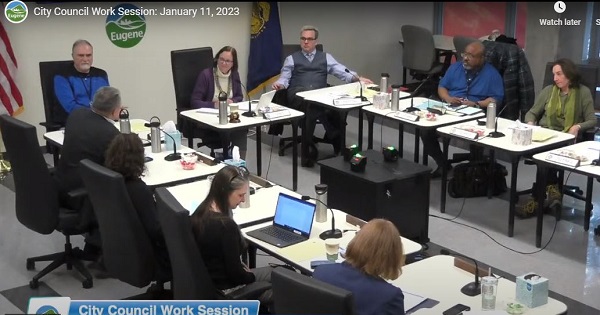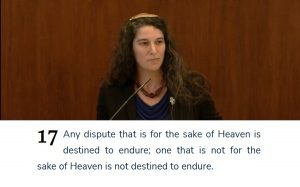Council asks for session on upstream dam failure
3 min read
The city council asks: How many feet of water can we expect in downtown Eugene after the big earthquake?
[00:00:07] Councilor Randy Groves: Are we involved in any work with the Army Corps of Engineers on evaluating dam stability, especially on the upper Willamette River?
[00:00:18] Jack Blackham, Public Works Engineering: That’s a good question. That’s actually probably more our emergency management team.
[00:00:22] Councilor Randy Groves: Thank you. (City) Manager (Sarah Medary), I would really like to get a little more information on that at some point. I mean, I know our schedule fills up pretty quickly, but you know, the thought—if all those fail, that’s 42 feet of water in downtown Eugene—is troublesome.
[00:00:39] Councilor Alan Zelenka: Randy, your comment about the dams, I assume that is just an investigation looking at it, a just-in-case kind of thing.
[00:00:49] As far as I know, all of them have been evaluated by the Army Corps, and they’re all in good shape and safe and we shouldn’t be freaking out the public by thinking that somehow these dams are going to break and flood Eugene.
[00:01:02] John Q: The dams were built before we knew about the periodic Cascadia Subduction Zone earthquakes.
[00:01:09] Mayor Lucy Vinis: Everybody’s shaking their heads here, and I think because every year on the United Front trip, we have gone to Washington, D.C. to talk about the 42nd Street levee in Springfield, and that it will not hold. So there is concern.
[00:01:21] John Q: Speaking specifically about the upstream dams, Councilor Groves.
[00:01:25] Councilor Randy Groves: They are rated on a scale of one to five, with five being the worst, and all the dams above us are a four. And I’m currently serving on the DEQ Fuel Tank Seismic Stability Advisory Committee for the state DEQ and this issue has been raised there as well, so, I think it’s more precarious.
[00:01:47] Councilor Alan Zelenka: Not that they’re imminent.
[00:01:48] Councilor Randy Groves: Not imminent until we have a 9.0 earthquake.
[00:01:53] Councilor Mike Clark: I was just going to add to Counselor Groves’s comment by saying, I’ve been teaching my kids since they were born that if we get the Cascadia earthquake, their whole mission in life is to seek higher ground as fast as they can. (Right.)
[00:02:06] And I have at this table over 16 years asked many, many times: Is there modeling of this? If we get a 9.0 earthquake, how much water is on the city floor? I’d love it if we could actually get that kind of information at some point.
[00:02:22] Councilor Randy Groves: Forty-two feet.
[00:02:24] Councilor Mike Clark: I’ve always heard 15. This is why I’m asking, ‘cause I don’t know what the truth is. I do know though, that Randy’s 100% correct that the dams above us are not, you know, impregnable to an earthquake. We’ll have a lot of water to contend with if we have a big earthquake. And I think that’s a reasonable thing that we ought to be talking about at this table.
[00:02:46] Councilor Matt Keating: When I was LCC board’s liaison to LCOG, the Lane Council of Governments had a presentation on this very topic.
[00:02:51] It was impressed upon me that the airport at Creswell is FEMA’s designated emergency airport, should our airport be unusable because of damage at one of the dams. It’s not insignificant. (Yeah.)
[00:03:07] Mayor Lucy Vinis: Interesting. Okay. That was a sobering thought.
[00:03:11] Councilor Mike Clark: Coburg Hills.
[00:03:11] John Q: After recent presentations by neighborhood preparedness teams and Northwest Eugene, councilors want to learn more about inundation flooding after an earthquake.




